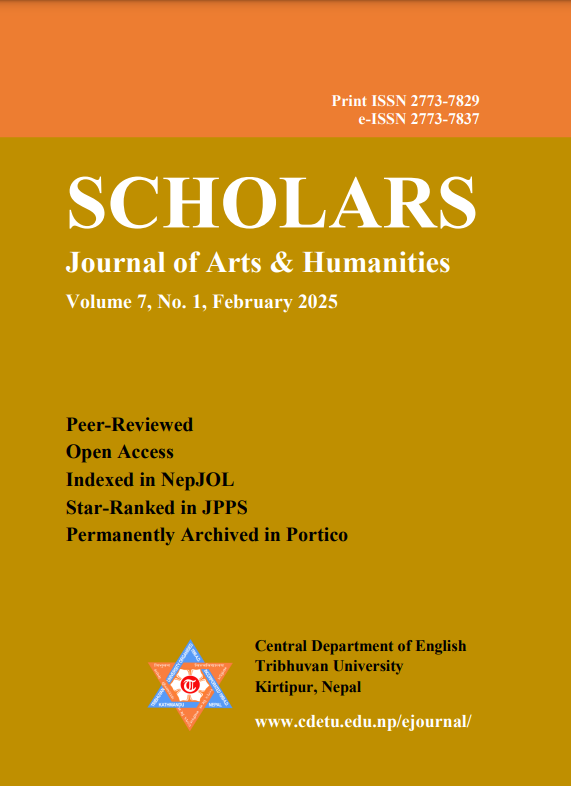Alterity in the Poetry of Sophia Obi and Mabel Evwierhoma: A Postcolonial Critique
DOI:
https://doi.org/10.3126/sjah.v7i1.75675Keywords:
Alterity, environment, child marriage, sexual harassmentAbstract
A writer’s socioeconomic background shapes the content of the literary production. Any writing that depicts how the writer’s social milieu influences the ideological direction and preoccupation is bound to reveal details of their lives. It is against this backdrop that this paper examines the alterity in poetry of Sophia Obi and Mabel Evwierhoma's artistic imagination. The essay samples the poems of Obi in the collection, Tears in the Basket and Evwierhoma's Solitude and Other Chants (henceforth abbreviated as TAB and SOC respectively). The methodology adopted is qualitative research while postcolonial alterity theory is applied in reading the poems in order to unveil the pain and precarity of the envisaged other. The findings of the study reveal that both Obi and Evwierhoma are the keen observers of the environment and are influenced by it. It is also discovered that Obi squarely focuses attention on the Niger Delta predicament while Evwierhoma identifies with the predicament of the girl child. The paper concludes that Obi depicts alterity through the portrayal of environmental dispoliation and impoverishment of the Niger Delta while Evwierhoma articulates alterity through the portrayal of the girl child as victims of sexual harassment, child marriage, and defilement as strategies to arouse public attention as well as actualize societal redirection.
Downloads
Downloads
Published
How to Cite
Issue
Section
License

This work is licensed under a Creative Commons Attribution 4.0 International License.
© Central Department of English, Tribhuvan University and Authors




